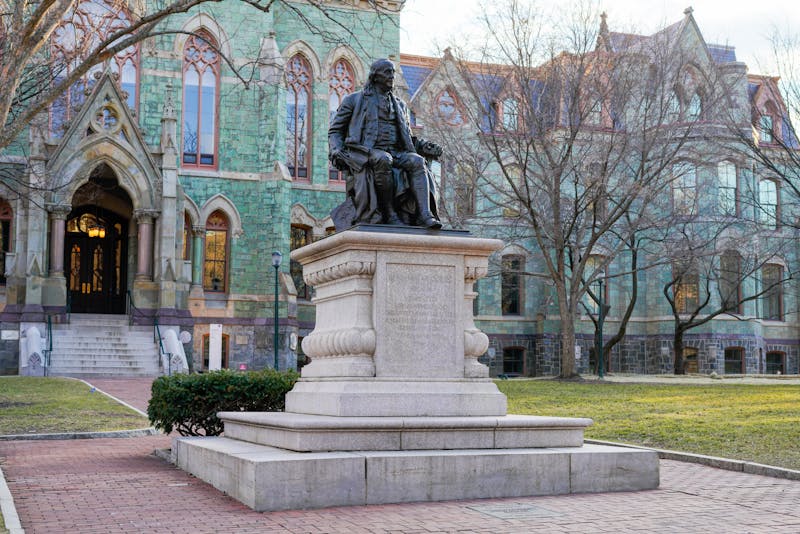
Representative John Lewis (D-Ga.) has died at age 80, leaving behind a distinguished legacy as a pioneer of the Civil Rights Movement and a longtime United States Congress member.
Lewis, who was presented with an honorary degree from Penn in 2012, had been fighting Stage 4 pancreatic cancer since December 2019. His death was confirmed in a statement from House Speaker Nancy Pelosi (D-Calif.) on Friday.
"Lewis was the truest of American heroes," Penn President Amy Gutmann wrote in an emailed statement to The Daily Pennsylvanian. "It was a personal honor to know him, and present him with an honorary degree from Penn. When you were with him, you knew you were in the presence of greatness. What a glorious life he lived, and how blessed we are as a country by the sacrifices he made and the positive change he brought about."
Lewis was presented with an honorary Doctor of Laws degree from Penn at the University's 256th Commencement in May 2012.
After fighting on the frontlines to end Jim Crow laws during the Civil Rights Movement, Lewis saw the recent global protests against police killings of Black Americans and systemic racism as a continuation of his life's work, The New York Times reported. Although his illness prevented him from protesting, he made his last public appearance on June 7 at Black Lives Matter Plaza in Washington D.C., The Washington Post reported.
Lewis was one of the original 13 Freedom Riders, a group of Black and white individuals who challenged segregated travel on the interstate in the South in 1961. He also helped organize the March on Washington, where Rev. Martin Luther King Jr. was the primary speaker.
On March 7, 1965, he led the March from Selma to Montgomery, also known as "Bloody Sunday," where he suffered a skull fracture. Televised images of the beatings of Lewis and many others galvanized support for the Voting Rights Act, which was presented to Congress eight days later and signed into law on Aug. 6, 1965.
Lewis, who believes in the necessity of "good trouble," has long been an advocate of civil disobedience and nonviolent protest, even after suffering countless acts of violence as a leader of the Civil Rights Movement.
In 1987, he was elected to represent Georgia's Fifth Congressional District, where he continued to serve up until his death. During his time in Congress, he defended the gains he helped achieve for Black Americans. Lewis focused on legislation fighting poverty and improving education and health care.
He remained a prominent critic of 1968 Wharton graduate President Trump after his election in 2016, and is seen by many Democrats in Congress as the conscience of the caucus.
"[Lewis] lived a life of the utmost courage, standing up to Jim Crow and countless assaults on the inalienable rights of Black Americans," Gutmann wrote. "He fought tirelessly for civil rights and social justice for all, and became the conscience of the United States Congress."
The Daily Pennsylvanian is an independent, student-run newspaper. Please consider making a donation to support the coverage that shapes the University. Your generosity ensures a future of strong journalism at Penn.
Donate






